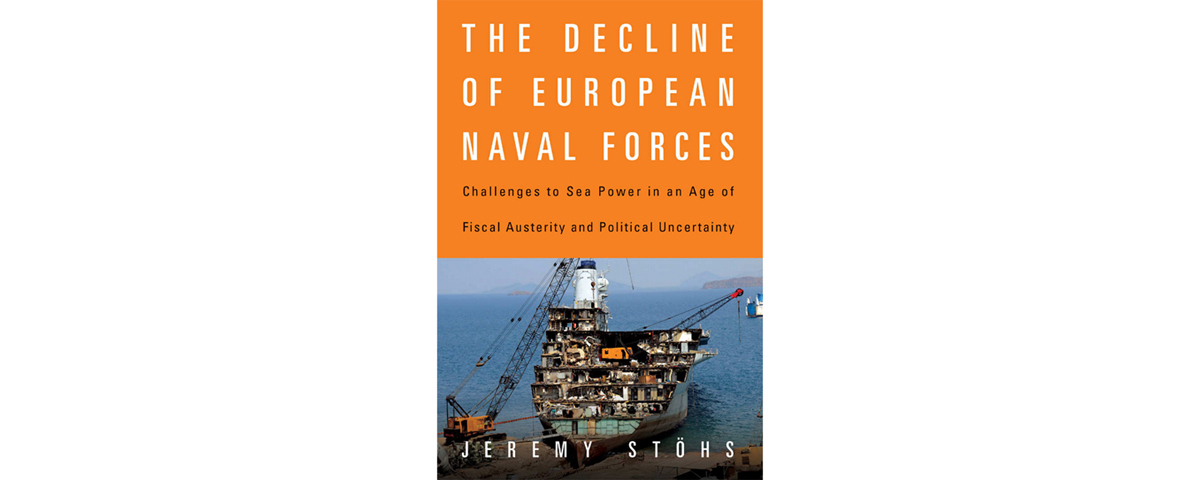The Decline of European Naval Forces: Challenges to Sea Power in an Age of Fiscal Austerity and Political Uncertainty, by Jeremy Stöhs, Naval Institute Press, Annapolis, Md., 2018, $36.95
Written from a European viewpoint by Austrian-born defense analyst Jeremy Stöhs, this provocative new book examines the decline of European naval forces since the end of the Cold War and suggests what the 21st century may hold for Western sea powers. The author harbors no illusions about the vital importance of maritime security, for while Austria has no coastline of its own, most of the goods its people consume are imported via countries that have access to the sea.
Recent years have witnessed a shift in global trade routes and the maritime powers that control them from the West, dominated by the United States and Europe, toward the East, driven by Japan, India, South Korea, Indonesia and, most important, China. Stöhs points to burdens placed on European naval forces by recent events in Libya, Syria and Iraq. European naval assets have also been called on to conduct anti-piracy patrols in the Indian Ocean and to address the refugee crisis in the Mediterranean. Finally, the resurgence of Russian naval power has underscored the critical importance of the North Atlantic Treaty Organization’s naval forces to European defense.
Of paramount importance through the early 1990s was European nations’ commitment to NATO—essentially a joint defense treaty designed to shield Western Europe against the common threat posed by the Soviet-dominated Warsaw Pact. Much of Europe’s naval contribution to NATO was directed toward containing Russian naval power and securing maritime communications between North America and Europe. Those priorities seemed to change with the dissolution of the Soviet Union. With what had been perceived as NATO’s principal threat eliminated, many European governments cut funding. Their defense budgets shrank further during the recession of the late 2000s. In the past 25 years European nations’ collective defense budgets, and their fleets, have been cut in half.
Stöhs doesn’t see that trend as irreversible. Since 2014 NATO members have agreed to return their defense spending to 2 percent of their gross domestic product. The United States, the author argues, will remain the pre-eminent world naval power for the foreseeable future. That said, emerging naval powers in the Asia-Pacific region will increasingly occupy the U.S. Navy, thus requiring European nations to shoulder more responsibility for their own maritime security. The Decline of European Naval Forces is a fascinating study of European naval power, how and why it reached the state in which it finds itself, and the roles it may play in years to come.
—Robert Guttman





